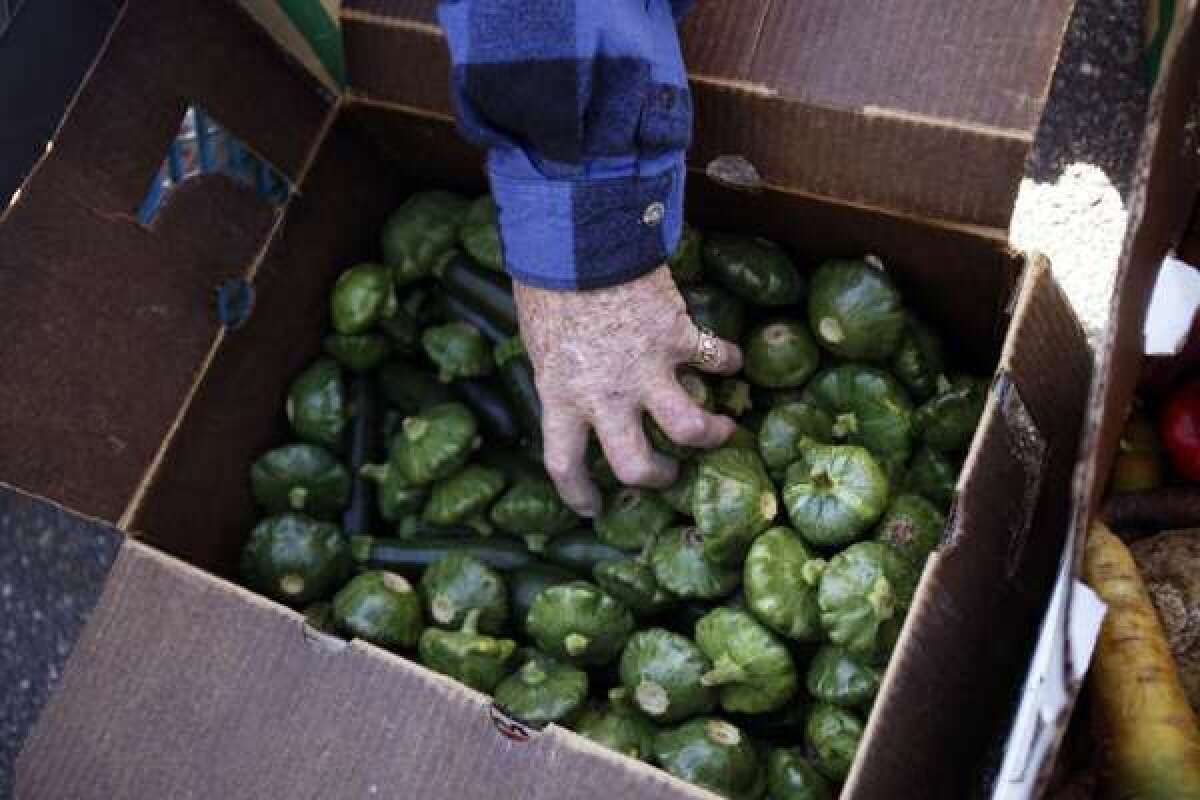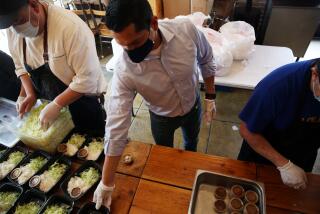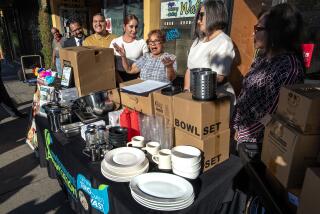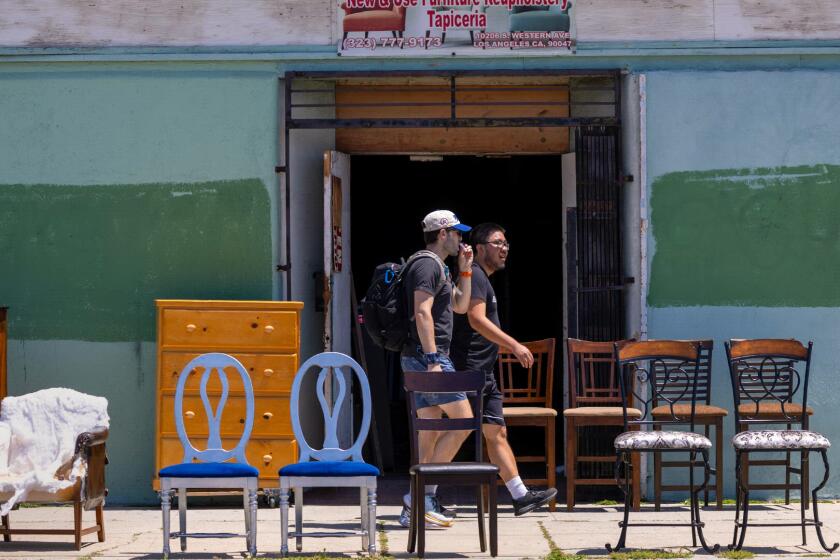Food banks collaborate to get more nutritious food to people

Food banks have worked to change their stocks from any old leftovers to food that’s more nutritious and fresher, and a new collaboration hopes to cement policy at food banks around the country to make sure that poor Americans get healthful food.
Kaiser Permanente and Mazon, a Jewish anti-hunger organization, announced Monday their Healthy Options, Healthy Meals initiative in response to the persistent need of millions of Americans to rely on food banks and the health and economic costs of obesity and diet-related diseases.
That means that some food banks or pantries have instituted policies that they won’t accept donations of soda or candy. Others have hired nutrition experts, decided that a particular portion of the inventory would be fresh produce, or changed how they seek food and money donations.
“It is clear to us that food banks and food pantries have a unique and critical role to play in advancing nutritious food options for those they serve,” Abby Leibman, president of Mazon, said in a statement.
The new initiative includes 12 food banks whose work will “provide a concrete blueprint for how food providers can increase the nutritional quality of the foods and beverages they distribute,” said Marla Feldman, director of Health Options, Healthy Meals.
“Being poor and having a challenge making ends need meet doesn’t mean you should take whatever you can get. Everyone deserves healthy food,” said Loel Solomon, vice president for community health at Kaiser Permanente.
About a decade ago, Mazon started looking at the links between obesity and hunger, and collecting information about programs that worked to get nutritious food to people who needed it, Feldman said.
Poor people are likely to suffer from chronic disease more than people of means, so their needs for healthful food is particularly acute, Solomon said. Kaiser has worked with schools, corner stores, farmers markets and other institutions in the areas where it provides health services, and decided to move toward food banks too, he said.
More than 6 million households depend on food banks and pantries each year.
The 12 food banks in the program will write policies that affect all aspects of how they do business – something few now have, according to a UC Berkeley study. The goal is to make changes that will last, Solomon said.
Many food banks are already taking steps to educate donors about the sorts of food people need, including writing lists of those items on collection barrels. Donations of money are often more useful than cans because food banks can get make a dollar go further than one person shopping at a supermarket.
Food banks in California and elsewhere have started to establish relationships with farms to take produce that might be too small or misshapen for the usual outlets but are healthful and fresh.
“Food banks were historically started to just accept any food, and any surplus food was OK. A calorie was a calorie,” Feldman said. But today there is a smaller volume of donations and other ways for companies to sell those dented cans.
“Due to the recession there are so many more people in need and they rely on the supply from the food banks and the food pantries,” she said. “That coupled with the rise in obesity and diet-related illness, have caused the landscape to change.”
Solomon cited as an example of the change needed a food bank in Washington, D.C., that built a storage facility for fresh produce.
“It’s got to be a sustainable, powerful, long-term strategy. You’re not just buying healthier food that will be there one day and you need to collect more money for it to be there the next day,” he said.
The 12 food banks taking part in the initiative include three in California: Alameda County Community Food Bank, Feeding America San Diego and The Jacobs & Cushman San Diego Food Bank. The others are Atlanta Community Food Bank, Care and Share Food Bank for Southern Colorado in Colorado Springs, Capital Area Food Bank, Washington, D.C., Cleveland Foodbank, Community Food Share in Longmont, Colo., Food Bank of the Rockies in Denver, Maryland Food Bank in Baltimore, Maui Food Bank in Hawaii and the Oregon Food Bank in Portland.
@mmacvean on Twitter
More to Read
Sign up for our L.A. Times Plants newsletter
At the start of each month, get a roundup of upcoming plant-related activities and events in Southern California, along with links to tips and articles you may have missed.
You may occasionally receive promotional content from the Los Angeles Times.







